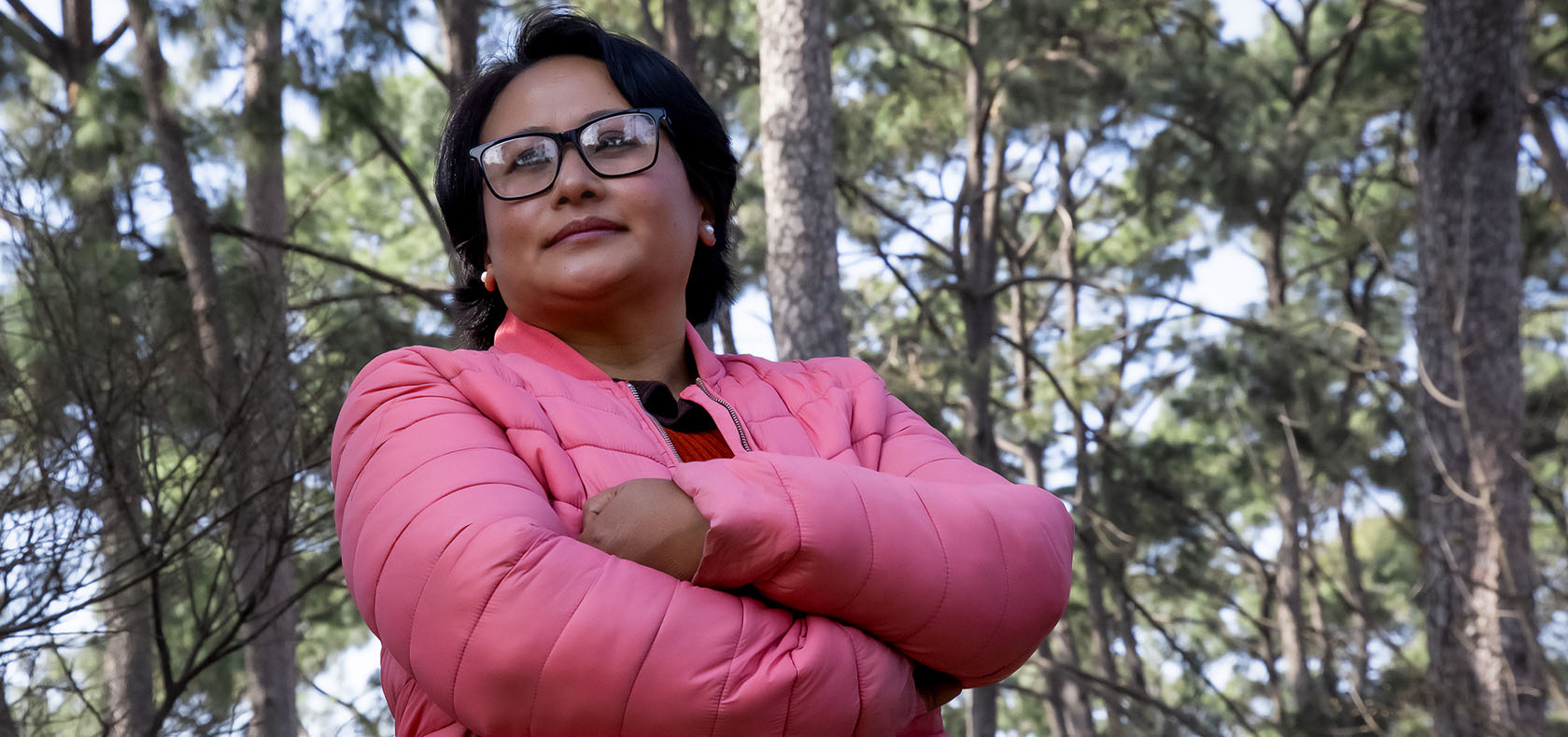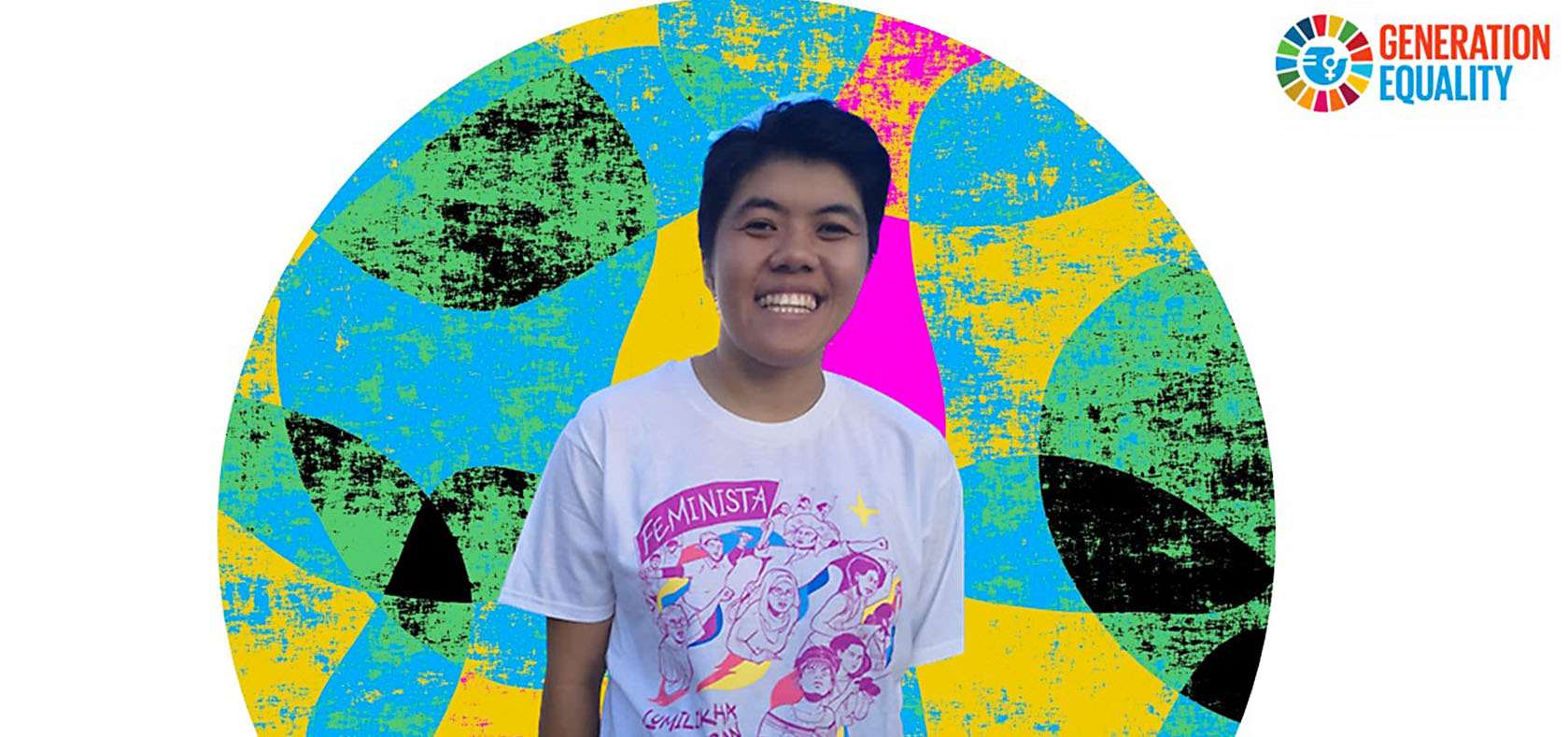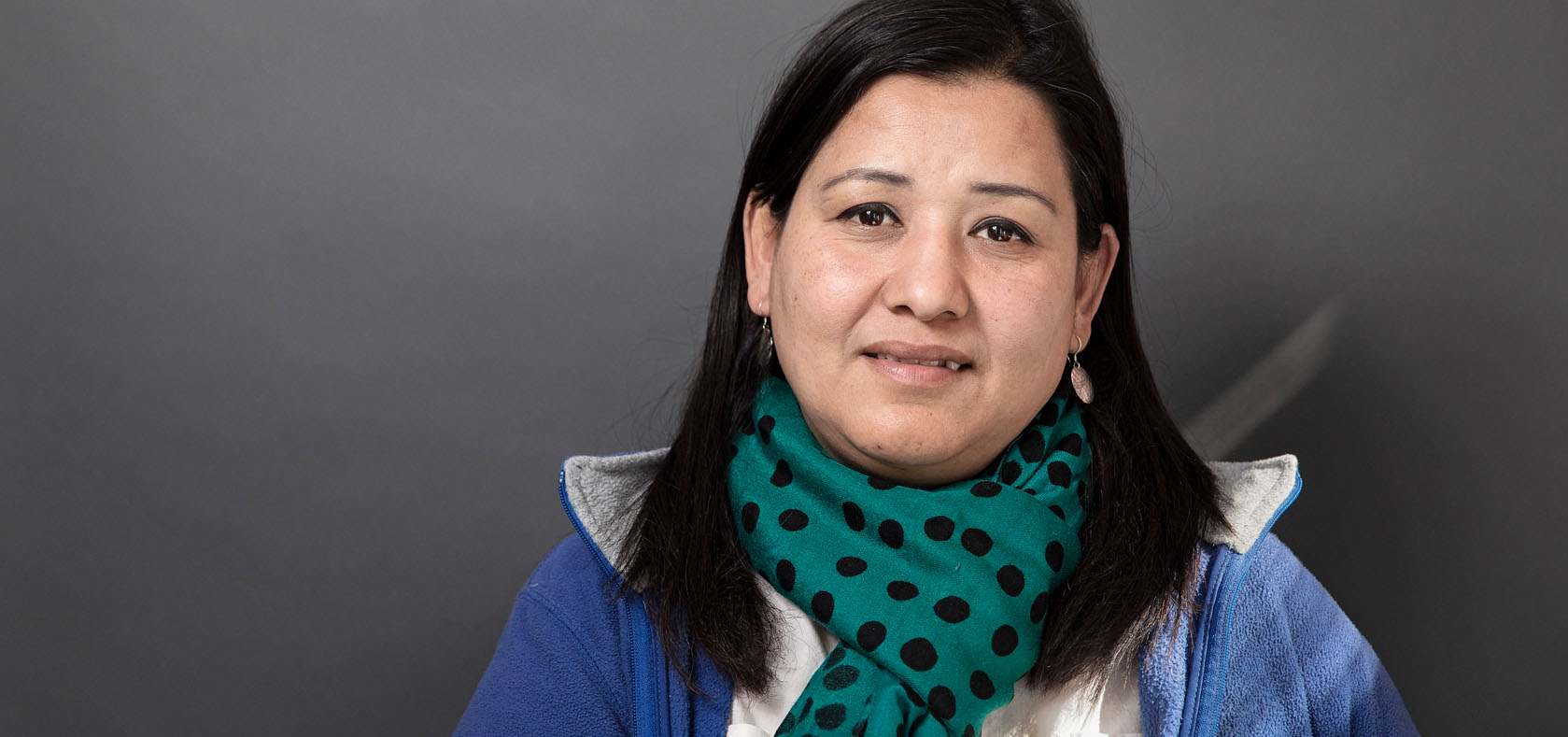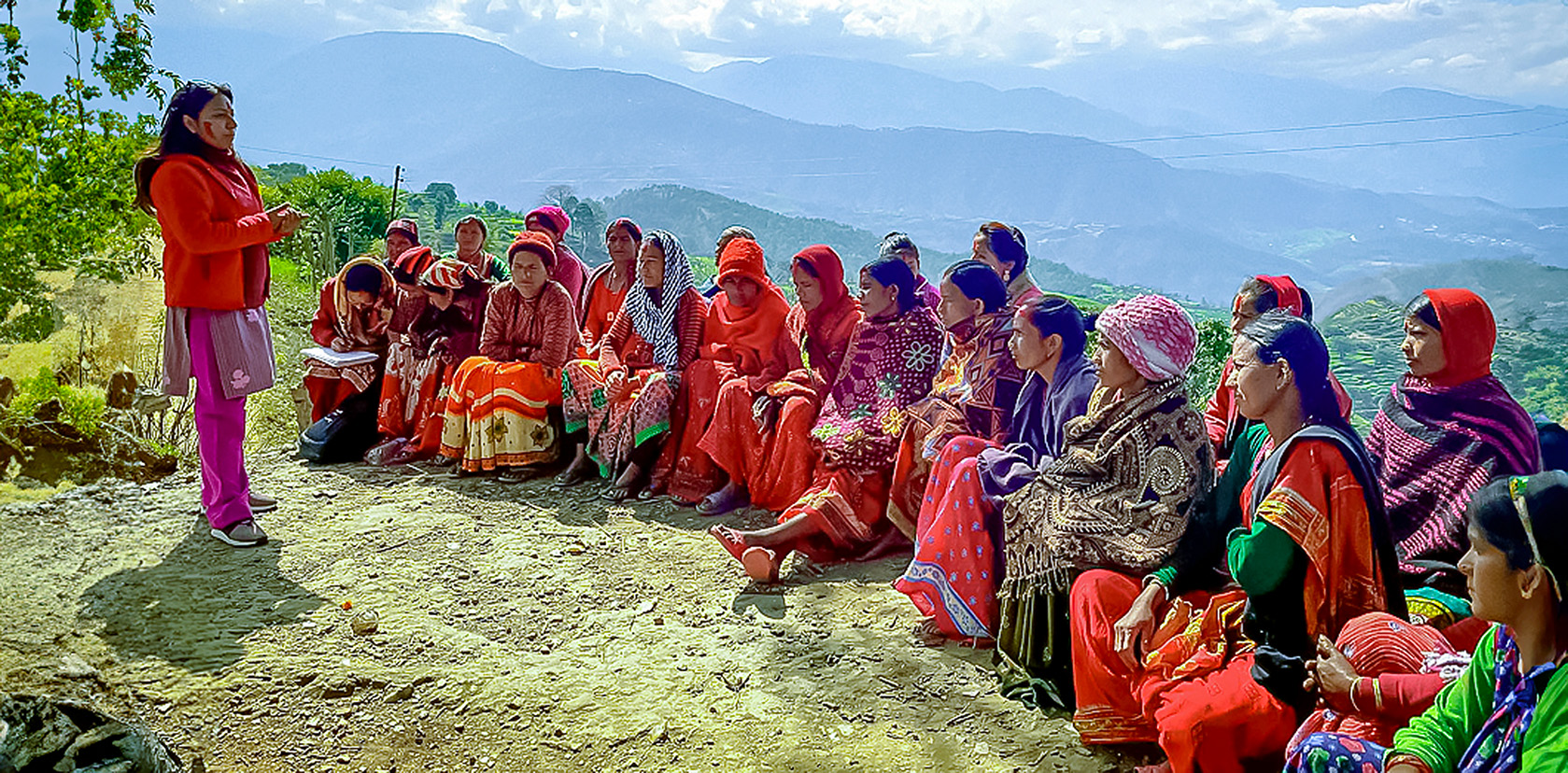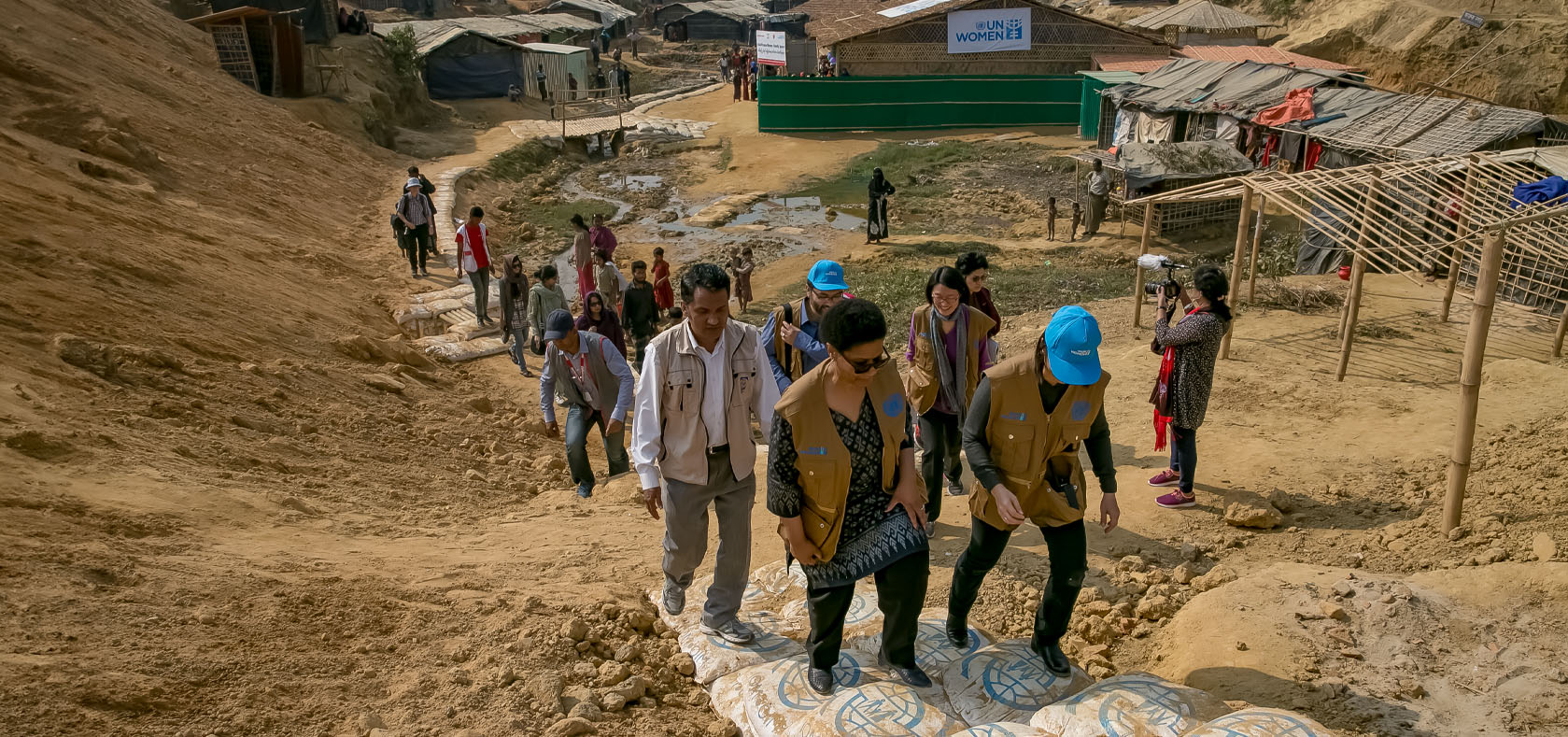Indigenous Women for Climate Justice
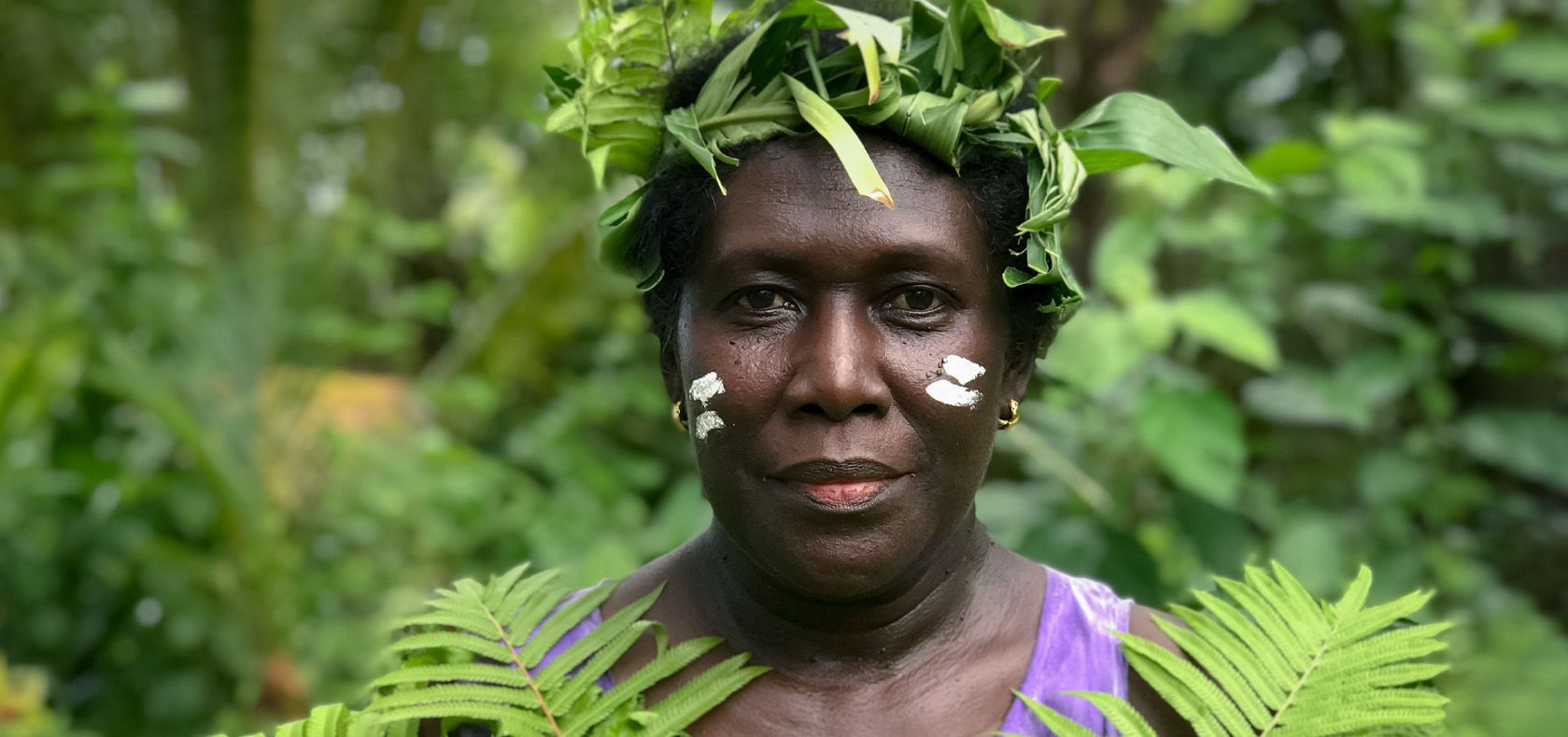
Rendy Solomon, from Gizo, Solomon Islands. She is an advocate for women leading climate solutions and heads a collective called
Plasticwise Gizo. Photo: United Nations/Rose
To secure climate justice, we must put indigenous women and their communities at the center of climate action. Indigenous and traditional knowledge, systems of governance, and customary laws have long recognised humans and nature as interdependent, with reciprocal rights and responsibilities. It is estimated that indigenous peoples and local communities conserve more of the Earth than designated protected and conservation areas - comprising less than 5% of the world's population, they protect 80% of global biodiversity. While indigenous communities contribute the least to climate change, they are impacted the most due to their dependence upon and unique relationship with the environment and its resources. The nexus between gender, social equity, and climate justice, has given rise to powerful movements that have amplified the voices of indigenous women and their communities.
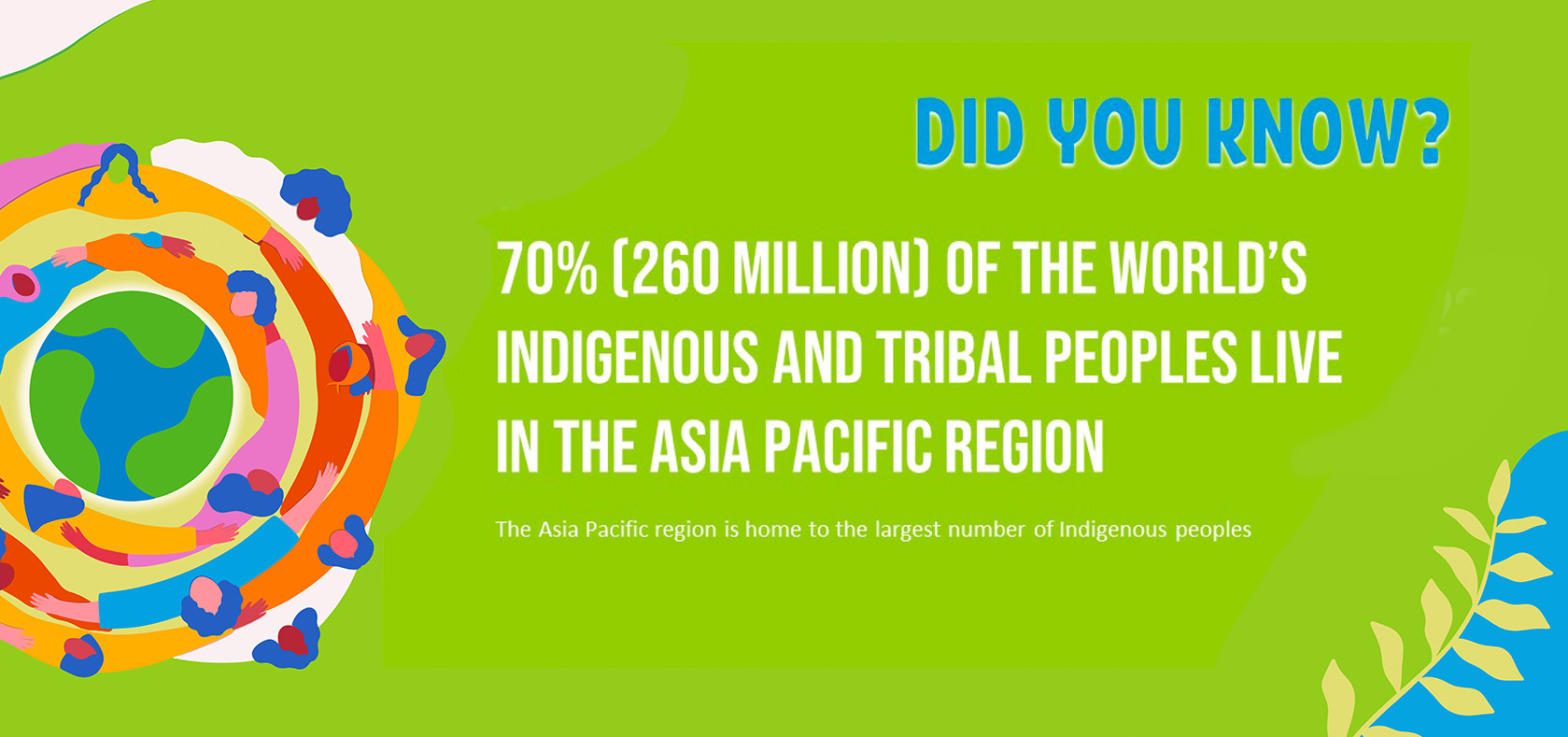
Indigenous Peoples share collective ancestral ties to the lands and natural resources where they live, occupy or from which they have been displaced. The land and natural resources on which they depend are inextricably linked to their identities, cultures, livelihoods, as well as their physical and spiritual well-being.
The key to sustainability and to assuring a healthy planet lies in restoring humanity’s broken relationship with the land and with Nature as a whole. That view is echoed by indigenous peoples, who understand that the meaning of life hangs in the balance of coexistence between all life.
—United Nations Secretary-General, 2020
Sustainable development means living in harmony with nature
“The Earth can exist without us, but we cannot exist without her”. Find out more about living in harmony with nature from the UN Harmony with Nature Network:
Right to a clean, healthy and sustainable environment
In a landmark decision, the UN Human Rights Council recognized “the right to a clean, healthy and sustainable environment as a human right”, on 8 October 2021. In doing so, the Council also recognized that the human rights implications of environmental damage are felt most acutely by those already in vulnerable situations, including indigenous peoples, older persons, persons with disabilities, and women and girls. Among other measures, the Council encouraged States to adopt policies “with respect to biodiversity and ecosystems”.
Read more: the Human Rights Council Resolution on “The human right to a clean, healthy and sustainable environment” (A/HRC/RES/48/13)
The resolution was adopted under the presidency of Ambassador Nazhat S. Khan of Fiji, the first held by a representative from a small island developing state in the Pacific.
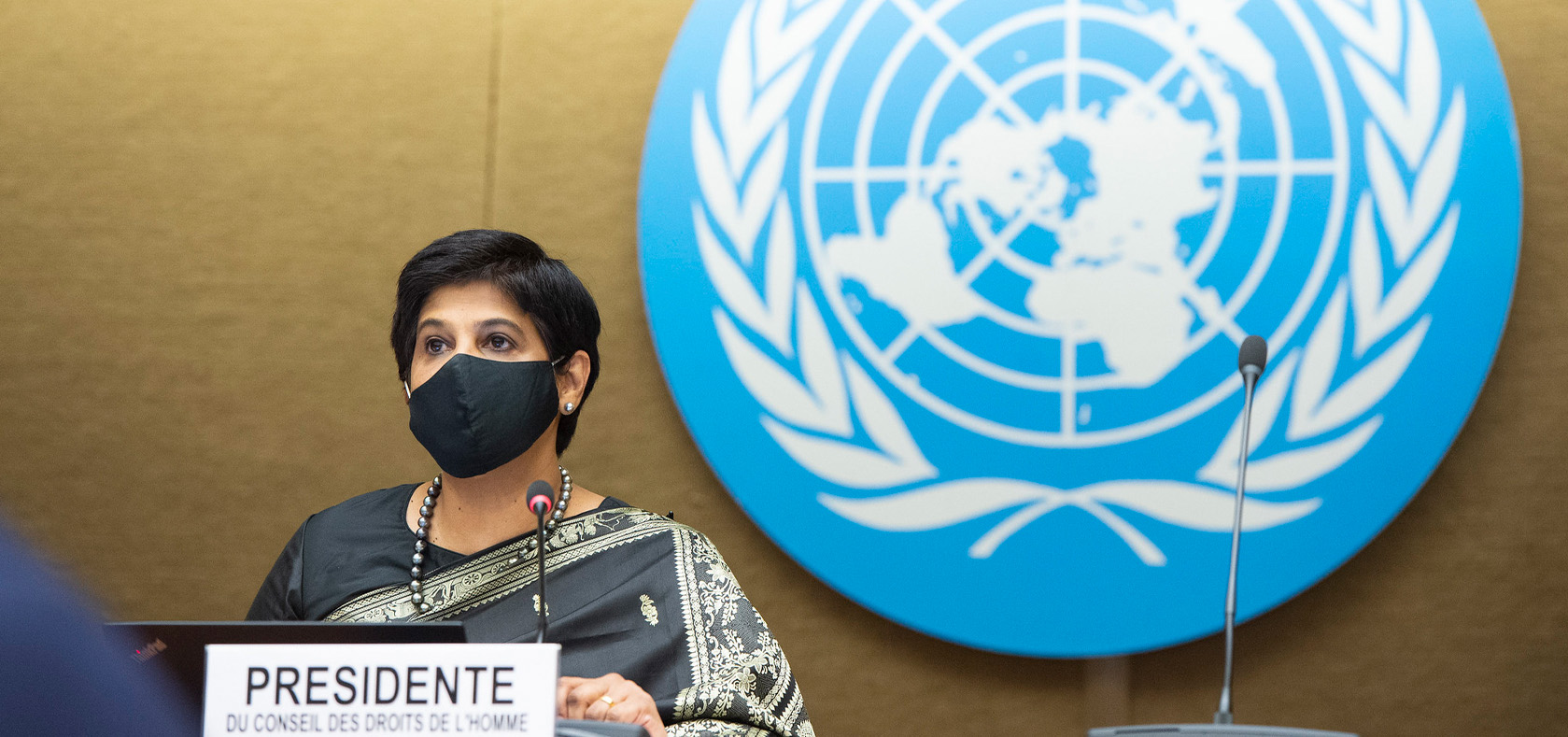
Ambassador Nazhat Shameem Khan (Fiji), President of the Human Rights Council. Photo: UN Women/Violaine Martin
Rights of Nature
The Rights of Nature is a legal framework and social movement, which draws from the world views of indigenous peoples, and recognises that all plants and animals, together with the planet’s geological processes, atmosphere and hydrosphere, have as much right to exist, regenerate and thrive as human beings do. The Asia Pacific region is leading the way in catalysing the Rights of Nature, for example:
- New Zealand has recognised the legal rights of the Whanganui River, together with the rights of the Indigenous peoples responsible for the river, as having the authority to speak on the rivers’ behalf.
- Bangladesh has given all rivers in the country legal rights, recognising them as “living entities” with rights as “legal persons”. The rights of the rivers may be enforced against both private and public entities.
- Pakistan recognised the need to protect the rights of nature with the Supreme Court saying that “[m]an and his environment each need to compromise for the better of both, and this peaceful coexistence requires that the law treats environmental objects as holders of legal rights.”
![[cover]](/sites/default/files/2022-03/ap-A2J-WOMEN-THE-ENVIRONMENT-AND-RIGHTS-OF-NATURE-1679px.jpg)
“There has been growing awareness that recognition of the Rights of Nature is embedded in customary laws, in contrast to modern environmental laws which remain grounded on an anthropocentric paradigm. Increasingly, court rulings provide evidence of indigenous narratives being recognized for the first time as an integral part of the concept of legal pluralism, and their views are being accepted in a positivistic system of law.”
—United Nations Secretary-General, 2020
Right to culture, loss of nation: Pacific Islands
Rising sea levels are threatening to submerge Pacific Islands States, posing an existential threat to nations and cultures. Climate-induced displacement is already occurring across the Pacific, fracturing connections with ancestral lands, culture, and the passing of traditional knowledge from generation to generation.
Pacific Islands states have emphasized the importance of ensuring that people can continue to enjoy and practice their own cultural and traditional practices, as well as their traditional ways of life, despite their loss of lands.
“As much as the land, the sea is our home. Even if the land disappears, we expect the sea to remain our home and to be recognised internationally as our home.”
—Minister for Justice, Communication & Foreign Affairs of Tuvalu
Minister Simon Kofe's speech at the COP26 Side Event Statement 2021. Video: PCCM-HS COP26-SideEvent
The Pacific Island Forum has adopted a declaration proclaiming that the region’s maritime borders be maintained without reduction due to rising sea levels. Pacific Island States are seeking international recognition of their statehood and maritime boundaries. The International Law Commission has established a study group on sea level rise in relation to international law.
In the words of activists




![[cover]](/sites/default/files/2022-03/ap-A2J-WOMEN-THE-ENVIRONMENT-AND-RIGHTS-OF-NATURE-1679px.jpg)
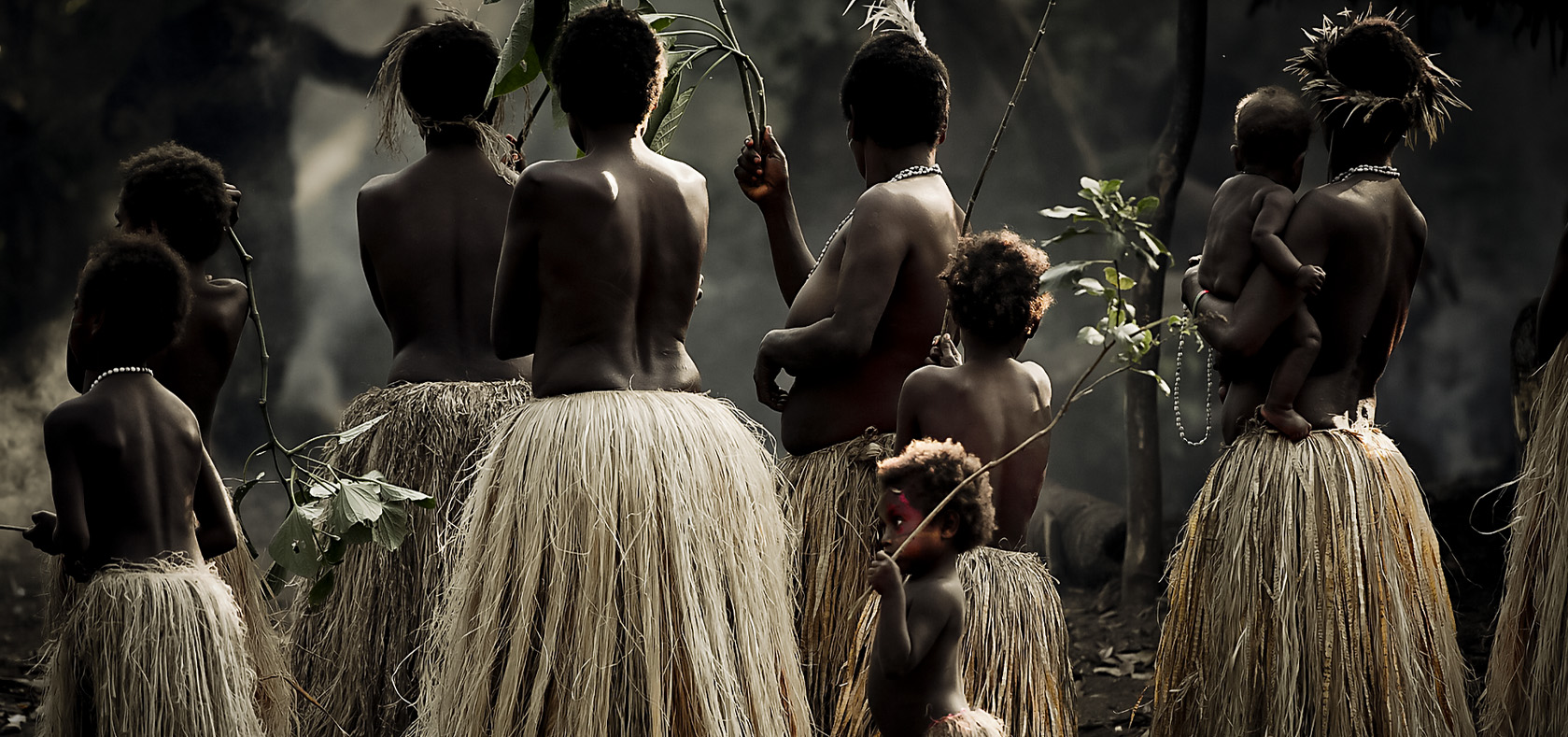
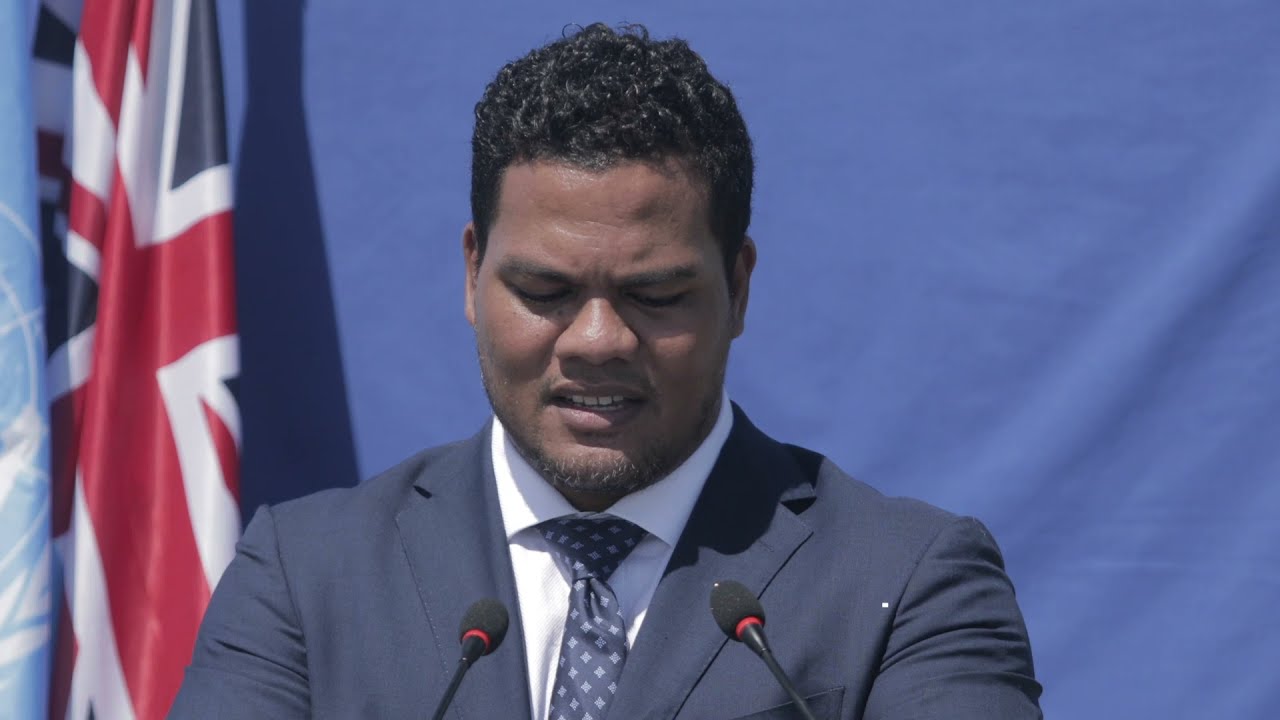
![[Banner]](/sites/default/files/2022-04/ap-a2j-Banner-Identity-1679px.jpg)
